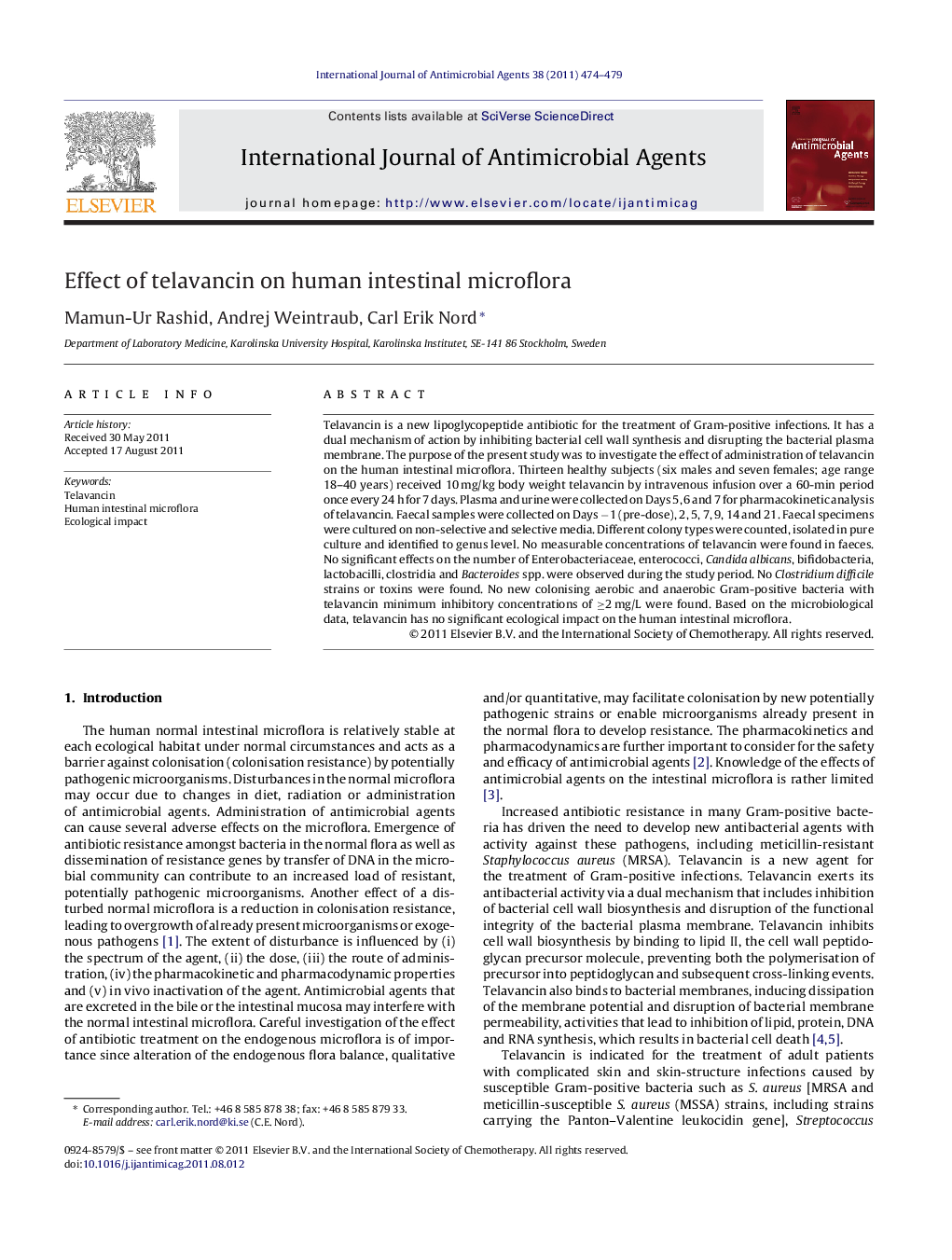| Article ID | Journal | Published Year | Pages | File Type |
|---|---|---|---|---|
| 3359358 | International Journal of Antimicrobial Agents | 2011 | 6 Pages |
Telavancin is a new lipoglycopeptide antibiotic for the treatment of Gram-positive infections. It has a dual mechanism of action by inhibiting bacterial cell wall synthesis and disrupting the bacterial plasma membrane. The purpose of the present study was to investigate the effect of administration of telavancin on the human intestinal microflora. Thirteen healthy subjects (six males and seven females; age range 18–40 years) received 10 mg/kg body weight telavancin by intravenous infusion over a 60-min period once every 24 h for 7 days. Plasma and urine were collected on Days 5, 6 and 7 for pharmacokinetic analysis of telavancin. Faecal samples were collected on Days −1 (pre-dose), 2, 5, 7, 9, 14 and 21. Faecal specimens were cultured on non-selective and selective media. Different colony types were counted, isolated in pure culture and identified to genus level. No measurable concentrations of telavancin were found in faeces. No significant effects on the number of Enterobacteriaceae, enterococci, Candida albicans, bifidobacteria, lactobacilli, clostridia and Bacteroides spp. were observed during the study period. No Clostridium difficile strains or toxins were found. No new colonising aerobic and anaerobic Gram-positive bacteria with telavancin minimum inhibitory concentrations of ≥2 mg/L were found. Based on the microbiological data, telavancin has no significant ecological impact on the human intestinal microflora.
